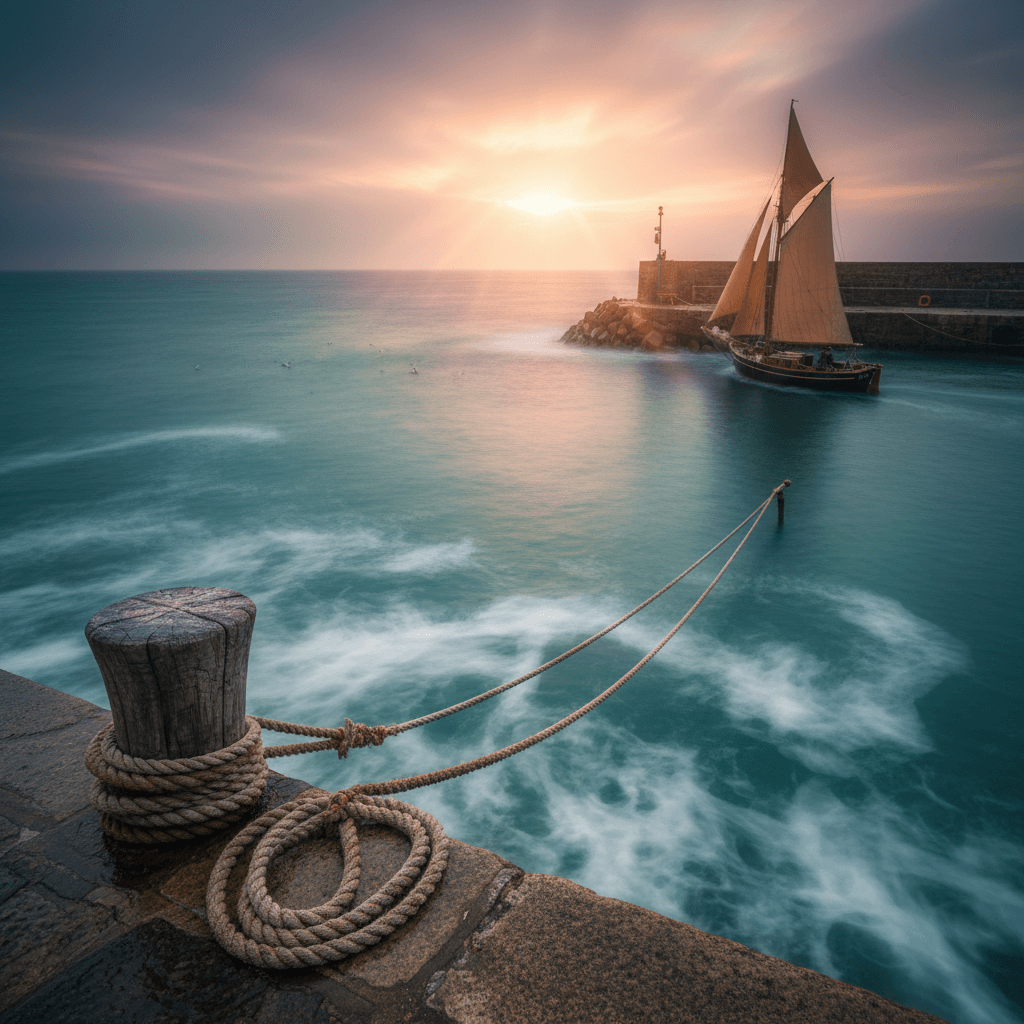Beyond Harbors: The Courage to Find New Oceans

Leave familiar harbors if you yearn to discover new oceans. — Paulo Coelho
The Call Beneath the Calm
At the outset, Coelho’s line recasts yearning as a navigational instrument: desire points beyond the breakwater of habit toward waters not yet mapped. In his novel The Alchemist (1988), the shepherd Santiago must leave his flock—his familiar harbor—to pursue a Personal Legend; the journey, not the pasture, teaches him to recognize treasure. Likewise, in our lives, certainty can masquerade as safety while quietly capping what we might learn or become. The proverb-like cadence of the quote invites a decision: remain tethered to anchorage, or risk the swell that makes discovery possible.
From Metaphor to Mapmaking
Moving from metaphor to history, great voyages were acts of disciplined departure. Zheng He’s treasure fleets (1405–1433) stitched distant ports into a single horizon, while Magellan’s expedition (1519–1522) proved a circumnavigable world, even though he did not live to complete it. Decades later, Charles Darwin boarded HMS Beagle (1831–1836), trading a predictable path for tides that reshaped biology through On the Origin of Species (1859). These sailors and scholars did not flee home; they redefined it by enlarging the known. Their routes underscore Coelho’s premise: new oceans appear only when we consent to lose sight of the shoreline.
The Psychology of Stepping Out
Psychology clarifies why departure fuels growth. The comfort–learning–panic framework suggests that productive challenge lives just beyond familiarity; the Yerkes–Dodson law (1908) similarly links moderate arousal to peak performance. Carol Dweck’s Mindset (2006) describes how a growth mindset reframes uncertainty as a teacher rather than a threat. Moreover, Victor Turner’s notion of liminality (The Ritual Process, 1969) shows that threshold states—betwixt and between—are where identities are reworked. Thus, leaving the harbor is not reckless bravado; it is calibrated exposure to novelty, where skills stretch, assumptions are tested, and meaning is revised in real time.
Innovation Lives Past the Breakwater
In the same spirit, breakthroughs emerge when teams sail against prevailing winds. The Wright brothers left armchair theory for a homemade wind tunnel, culminating in Kitty Hawk flights (1903) that redrew the possible. Netflix’s pivot from DVDs to streaming (2007) abandoned a profitable harbor to ride the bandwidth swell that now defines media. Even Apollo 8 (1968) broke Earth’s orbit to capture “Earthrise,” a single image that reframed environmental consciousness. Such moves were not leaps into chaos; they were voyages with hypotheses, instrumentation, and feedback loops, proving that discovery marries bold intent with iterative learning.
Risk, Readiness, and the Right Compass
Yet leaving port is only wise with provisions. Roald Amundsen’s meticulous depot-laying and dog-sled tactics won the South Pole (1911), while Robert Falcon Scott’s underprepared bid ended in tragedy (1912)—a stern reminder that courage without logistics can founder. Ernest Shackleton’s leadership during Endurance (1914–1916) further shows how clear priorities—save the crew, not the plan—turn near-ruin into survival. Coelho’s exhortation, then, implies craft: chart the weather, choose crewmates, define the North Star of values, and carry enough humility to tack when conditions shift.
Returning with the Ocean’s Gift
Ultimately, the point of setting sail is not escape but return. Joseph Campbell’s The Hero with a Thousand Faces (1949) describes the archetypal journey as leaving, transforming, and bringing back an “elixir” for the community. Darwin returned with notebooks that catalyzed a scientific revolution; countless travelers come home bearing languages, tools, and widened empathy. Thus the circle closes: by stepping beyond familiar harbors, we not only discover new oceans but also expand the shoreline to include them, converting private yearning into shared wealth of understanding.